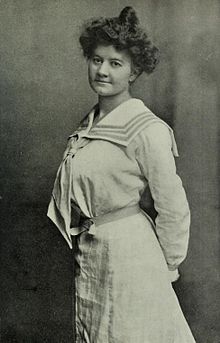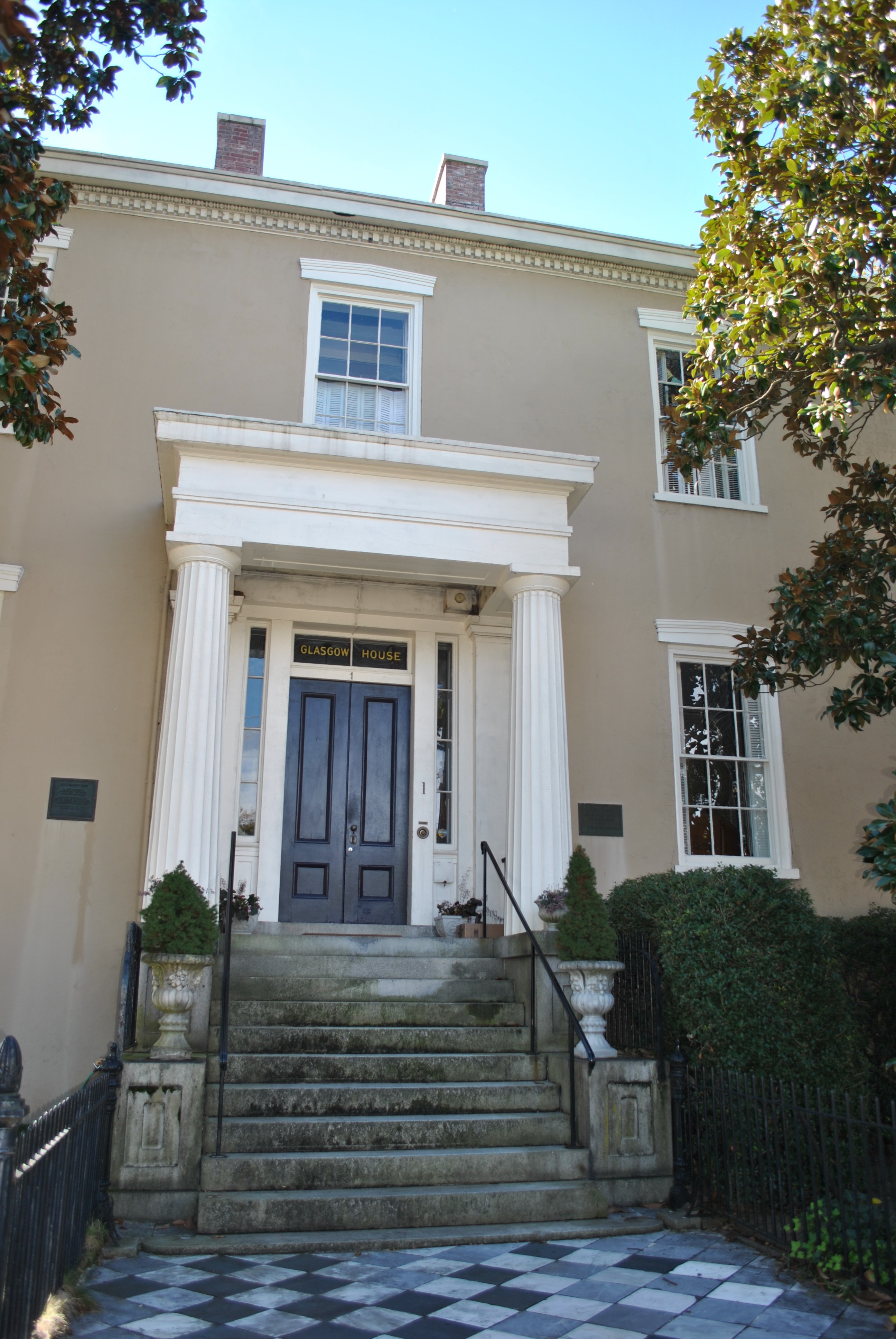BURIED TOGETHER
Partner
Anne Virginia Bennett, buried together
Queer Places:
Jerdone Castle, Bumpass, VA
1 W Main St, Richmond, VA 23220
Hollywood Cemetery, 412 S Cherry St, Richmond, VA 23220
 Ellen
Anderson Gholson Glasgow (April 22, 1873 – November 21, 1945) was an American
novelist who won the Pulitzer Prize for the Novel in 1942. A lifelong
Virginian who published 20 books including seven novels which sold well (five
reaching best-seller lists) as well as gained critical acclaim, Glasgow
portrayed the changing world of the contemporary South.[1]
Ellen
Anderson Gholson Glasgow (April 22, 1873 – November 21, 1945) was an American
novelist who won the Pulitzer Prize for the Novel in 1942. A lifelong
Virginian who published 20 books including seven novels which sold well (five
reaching best-seller lists) as well as gained critical acclaim, Glasgow
portrayed the changing world of the contemporary South.[1]
Born in Richmond, Virginia on April 22, 1874 to Anne Jane Gholson
(1831-1893), and her husband Francis Thomas Glasgow, the young Glasgow
developed differently from other women of her aristocratic class.[2]
Due to poor health (later diagnosed as chronic heart disease), Glasgow was
educated at home in Richmond, receiving the equivalent of a high school
degree, although she read deeply in philosophy, social and political theory,
as well as European and British literature.[3]
Her parents married on July 14, 1853, survived the American Civil War, and
would have ten children together, of whom Ellen would be the next to youngest.
Her mother, Anne Gholson, was inclined to what was then called "nervous
invalidism"; which some attributed to her having borne and cared for ten
children.[4]
Glasgow also dealt with "nervous invalidism" throughout her life. Ellen
Glasgow thought her father self-righteous and unfeeling.[5]
However, some of her more admirable characters reflect a Scots-Calvinist
background like his and a similar "iron vein of Presbyterianism."[6]
Her two eldest sisters, Emily (1865-1913) and Anne (b. 1857) were born before
the American Civil War; her eldest brothers, Cary (1864-1911) and Arthur
(1865-1955) were born during the conflict. Her brother Francis T. Glasgow Jr.
(1870-1909) was born two years before Ellen, and her younger sister Rebe
Gordon Glasgow Tutwiler (1877–1967) born shortly after Ellen.
Ellen Glasgow spent many summers at her family's Louisa County, Virginia
estate, the historic Jerdone Castle plantation, which her father bought in
1879, and would later use that setting in her writings.
Her paternal great-grandfather, Arthur Glasgow, had emigrated with his
brothers in 1776 from Scotland to the then-large and frontier Augusta County,
Virginia. Her father, Francis Thomas Glasgow, was raised in what had become
Rockbridge County, Virginia, graduated from Washington College (now Washington
and Lee University) in 1847, and would eventually manage the Tredegar Iron
Works. Those had been bought in 1848 by Glasgow's maternal uncle, Joseph Reid
Anderson, who had graduated fourth in his class of 49 from West Point in 1836
and would introduce the use of enslaved labor at the ironworks to accompany
skilled white workers. Anderson was a major business and political figure in
Richmond, who supported the Confederate States of America, joined the Army of
Northern Virginia, and attained the rank of general. However, because the
Tredegar Ironworks produced munitions crucial to the Confederate cause,
General Robert E. Lee asked General Anderson to return and manage the Tredegar
Ironworks rather than lead armies in the field.
Her mother was Anne Jane Gholson (1831-1893), born to William Yates Gholson
and Martha Anne Jane Taylor at Needham plantation in Cumberland County,
Virginia. Her grandparents were Congressman Thomas Gholson, Jr. and Anne
Yates, who descended from Rev. William Yates, the College of William & Mary's
fifth president (1761–1764).[7]
Gholson was descended from William Randolph, a prominent colonist and land
owner in the Commonwealth of Virginia. He and his wife, Mary Isham, were
sometimes referred to as the "Adam and Eve" of Virginia.[7]
Glasgow had several love interests during her life. In The Woman Within
(1954), an autobiography written for posthumous publication, Glasgow tells of
a long, secret affair with a married man she had met in New York City, whom
she called "Gerald B."[36]
Ellen also maintained a close lifelong friendship with
James Branch Cabell, another notable Richmond writer. She was engaged
twice but did not marry. One fiancé, the prominent attorney and Republican
Party leader Henry W. Anderson, collaborated with Glasgow and provided copies
of his speeches for her novel The Builders.[37]
Glasgow felt her best work was done when love was over.[38]
By the end of her life, Glasgow lived with her secretary,
Anne Virginia Bennett, 10 years her junior, at her home at 1 West Main
Street in Richmond.[39]

Ellen Glasgow House, Richmond, VA
Glasgow died in her sleep at home on November 21, 1945,[34]
and is buried in Hollywood Cemetery, Richmond, Virginia. The Albert and
Shirley Small Special Collections Library at the University of Virginia
maintains Glasgow's papers. Copies of Glasgow's correspondence may be found in
the Marjorie Kinnan Rawlings papers at the George A. Smathers Libraries
Special Collections at the University of Florida. The Library of Virginia
honored Glasgow in 2000 as she became a member of the inaugural class of
Virginia Women in History.[35]
My published books:


BACK TO HOME PAGE

- https://en.wikipedia.org/wiki/Ellen_Glasgow
 Ellen
Anderson Gholson Glasgow (April 22, 1873 – November 21, 1945) was an American
novelist who won the Pulitzer Prize for the Novel in 1942. A lifelong
Virginian who published 20 books including seven novels which sold well (five
reaching best-seller lists) as well as gained critical acclaim, Glasgow
portrayed the changing world of the contemporary South.[1]
Ellen
Anderson Gholson Glasgow (April 22, 1873 – November 21, 1945) was an American
novelist who won the Pulitzer Prize for the Novel in 1942. A lifelong
Virginian who published 20 books including seven novels which sold well (five
reaching best-seller lists) as well as gained critical acclaim, Glasgow
portrayed the changing world of the contemporary South.[1]


